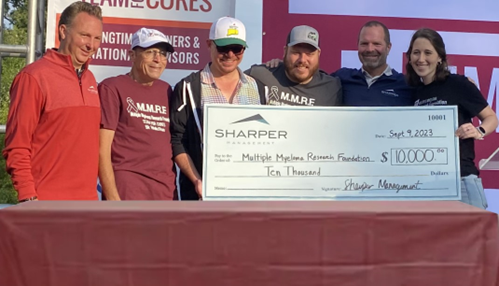Rental Management Program

Tracking rental properties within an Association has long been a challenge to both Management and to the Board. “Managing” those Owners that choose to rent by ensuring they abide by any policies the Association might have regarding renting is even harder. It goes beyond the scope of the Management Agreement, and certainly adds further burden to the volunteer Board member experience. Recognizing this issue, Sharper has rolled out a program that adds the necessary resources to help manage this task, while allocating the cost to those creating it (the Owners that rent). This program is in the form of an Addendum to the Management Agreement. If adopted, it engages our rental management staff and gives the following benefits to the Association. Sharper Management will: · Track all rental properties and their Lease terms · Keep file of all Tenant contact information · Ensure all required paperwork is on file (ex: copy of Lease, Addendum, etc.) · Verify compliance with any City requirements (ex: rental license) The costs associated with engaging in this program is charge to the Owners that rent on an annual basis. As a Board, you have the authority to establish fees – and this minor Owner fee creates an opportunity to better manage the rentals in your community. Speak to your Manager or contact Client Care for more information. clientcare@sharpermanagement.com
Sharper Gives Back

Each year Sharper chooses a cause or organization that will be the benefactor of this annual event. MMRF is a wonderful organization that is “commitment to advancing health equity so that all myeloma patients can benefit from the scientific and clinical advances we pursue. Since our inception, the MMRF has committed over $500 million for research, opened nearly 100 clinical trials, and helped bring 15+ FDA-approved therapies to market, which have tripled the life expectancy of myeloma patients.” Check them out at https://themmrf.org/ “Giving back to our community is one of our core values at Sharper Management,” said Dan Cunningham, owner and CEO. “As with any cancer type, Multiple Myeloma is a devastating condition. Unfortunately, it has affected the family of one of our staff in a significant way. They have found a great resource in the MMRF, though. It means a great deal to us to be able to support them and all of the families affected by Multiple Myeloma.”
Board Tip: Tabling vs. Postponing Agenda Items

While each HOA may conduct business differently, a standard procedure for board meetings is essential to optimize efficiency and productivity, commonly known as Parliamentary Procedure. Some boards use Robert’s Rules of Order to create the meeting format, agendas, motions, and floor discussion, while others create their own procedures. But, even with a solid structure to a meeting, certain topics will have heavier debate than others. Whether members don’t have enough information on the topic, or it’s too sensitive, the board will either “table” or “postpone” that item. Postpone If the board decides that the item is taking up too much time, or the members’ time would better be spent on something else, they can decide to postpone the matter. With this structure, the board intends to take the matter back up at a later time, whether in the same meeting or a future one. These items can be postponed to a definite time. The motion to postpone can be debated by members. There are, however, indefinite postponements, where the board has no particular intention of taking the matter back up. If an item is postponed indefinitely, the matter cannot be brought up in the same meeting. Table Following Robert’s Rules of Order, a motion to lay an item “on the table” takes precedence over all other motions at the time that it is made. This motion cannot be debated and needs a majority and a second to carry the motion. However, with laying an item on the table, that matter doesn’t automatically come up in the next meeting. There has to be a motion to take that topic off the table. And, the motion to take the matter off the table can only be done during certain classes of business, such as “unfinished business” or “general orders.” This motion also needs a second and a majority. As your Minnesota neighbors, Sharper Management works to keep your HOA board of directors informed to ensure efficient leadership.
Vendor Checklist

When selecting a vendor or contractor, it is critical to use due diligence and have a process in place for making these selections. By having a thorough process, you will satisfy your obligation as a board member while also protecting from potential liability. When evaluating vendors or contractors for selection, there are some key pointers to follow: Establish a thorough process for vendor “vetting.” Better yet, document the process for future boards to ensure consistency. Conduct personal interviews (or engage in some kind of personal contact). Confirm insurance coverage/documentation. Note that not all vendors need or have insurance, but this is an important aspect to take note of. Confirm any licensing, credentials, or certifications a vendor may have depending on its specific industry. Request multiple references and check them. Proposals are not contracts, even if all parties sign it. Always ask for a formal contract that includes important terms regarding the relationship (i.e. termination, dispute resolution). There are also special considerations for specific types of vendors and projects: Construction Projects Always get multiple bids to compare costs, operations, and qualifications. Ask for Certificate of Insurance and ensure that it is current and up to date through the anticipated length of a project. Check with the Minnesota Department of Labor and Industry to confirm license status, learn of potential enforcement action, or history. Follow up on any issues. Explore resources such as BBB, Angie’s List, Google reviews, and more. However, take all reviews with a grain of salt. Confirm contractor’s ability to complete project within your desired timeframe. Clarify methods of communication for project ahead of time. Management Companies Consider the amount of control you are relinquishing—full management? Partial? Ensure agreement covers what is expected in as much detail as possible, including things like termination options, governing documents, and auto-renew provisions. Have a thorough understanding of what services are included and what may require payment of additional fees. Understand the relationship between management and the Board and how it translates in terms of a contract. Routine/Ongoing Service Vendors Ensure there is a termination or dispute resolution process in place in the event there is an issue. Understand the schedule of services and what triggers action (i.e. inches of snowfall, days for garbage collection). As general rules of thumb, you can (and should) always negotiate a contract if there are concerns over the terms proposed. If multiple bidders are involved, allow for a process to give all bidders a fair chance at the project. Finally, make sure there is always a way to end the relationship if needed. At the end of the day, it is important to do your homework on the front end of the relationship to circumvent future issues. Do thorough research and check all available resources and negotiate for terms that you find acceptable. Luckily, Sharper Management offers a Preferred Vendor Directory. All preferred vendors are required to provide a certificate of insurance and be in good standing with the state of Minnesota. This can be a fantastic starting point in the vendor selection process: https://sharpermanagement.com/preferred-vendors/
Operations and Personal Protection Continue During COVID

As the pandemic continues, most people have adjusted to the “new normal” that is affecting everyone in the community association industry, the associations, and the owners. While we may be exhausted by the restrictions and repercussions of the coronavirus, we need to remain cognizant of actions needed to prevent the spread. There are several areas that associations should continue to monitor: CDC Guidance: Provided by the CDC, there is specific guidance for “shared or congregate housing,” which includes condominiums and other multi-family buildings. This information is comprehensive and includes many guidelines to maintain safe operations, acknowledging community associations’ unique needs and challenges. Declaration, bylaw, rules, and regulations: While there may not be specific COVID-19 related provisions, these documents provide insight on what general terms could impact or govern steps taken to respond to these issues. Social gatherings: Social gatherings should be continually evaluated, especially those seeking to occur indoors. Recommendations and restrictions are fluid, and it is important to stay abreast of these changes. Outdoor events are typically easier to implement, however with cold weather, indoor facility use may be more common. Construction projects: Continue to appropriately manage access to buildings by vendors. Create and maintain appropriate protocols, emphasizing the steps these vendors will take to ensure proper cleanliness and sanitization while working. Usage of amenities: There is ample information regarding access to amenities such as pools, fitness centers, etc. within associations. As this is an ongoing, fluid situation, it is important to create a schedule to evaluate these aspects. Adjustments should be continually made based on the latest data and guidance available. CDC Fact Sheet: Communication is critical to avoiding issues or misunderstandings in operations. Posting the updated/current CDC guidelines or fact sheet in buildings ensures that owners and others entering the building are aware of the standards and protocols in place. There is an overwhelming amount of information and suggestions for safety guidelines out there but keeping up to date on the aspects above is a good foundation. Balancing safety issues with common sense and community spirit is the best remedy available to us during this time.
Low Interest Rates and Your HOA Loans

One of the silver linings from the pandemic’s impact on the economy are the historically low interest rates. Due to concerns about the stability of the economy, most financial institutions have adjusted their traditional credit evaluation and standards. Because of the relatively low interest rates, now could be a good time for community associations to obtain or refinance a loan. HOA loans can help fund capital improvements and projects in the community—from common area improvements, to maintenance and repairs. Typically, HOAs utilize loans as alternatives to a special assessment for unexpected expenses. HOAs can also use loans for pay annual insurance premiums up front—which is especially beneficial if the insurance company offers an incentive for paying in advance. Additionally, loans allow HOAs to spread out the cost of common area improvements over time, while also allowing repairs and maintenance to be performed in a timely manner at today’s prices. With historically low interest rates, now is a good time to reevaluate current loans and see if a refinance would be beneficial for your community. The biggest advantage to refinancing is lowering the interest rate, which can have an incredible effect on monthly payments. Long term, this strategy could save the association hundreds (if not thousands) of dollars each year. There are a few types of loans that are pertinent to HOAs: Term loans are a type of loan where the funds are taken at loan closing and the monthly payment is fixed, usually ranging from three to 15 years in length. Term loans are typically utilized for capital improvement projects, deferred maintenance, property acquisition, reserve replenishment initiatives, refinancing existing loans, common area improvements, and construction defect repair. Non-revolving lines of credit are a type of credit where HOAs are required to pay interest on the borrowed balance. These lines of credit are typically shorter term (approximately 12 months) and are converted to a term loan before or at maturity. Emergency lines of credit are typically used for disaster relief. Instead of having to wait for insurance funds to arrive, HOAs can make any necessary repairs in a timely manner, and then pay back the loan once the claim has been paid. Interest would only be paid while waiting for insurance funds. If an association enters into a loan agreement, it is important to determine what method will be used for repayment. For smaller loans, HOAs could utilize an increase in monthly assessments. For larger loans, HOAs could create a special assessment that would allow each owner to pay up front or participate in the loan program. In both situations, transparency is key and board and homeowner approvals must be considered. Loans provide financial relief to associations with unexpected expenses and lessen the burden to homeowners. If your association could benefit from a new loan or refinancing an old, now may be the time to get a historically low rate.
Sharper Offers Board Training Opportunities

Sharper Management will present two free Board training opportunities in the coming months. All Board members from community associations managed by Sharper are welcome to attend. Tuesday, October 15th at 6 p.m. – “Financial Fundamentals and Simplifying Insurance” Wells Fargo Plaza, 2nd Floor Training Room at 7900 Xerxes Avenue, Bloomington, MN 55431 This focused session coincides with most association’s end-of-fiscal year and insurance renewal seasons. Insurance and financials are always large and complex topics. Led by Sharper’s two directors of community management, Candy Lee, CMCA, AMS, PCAM and Michelle Stephans, Director of Business Development, in addition to trusted insurance vendor and expert, Eric Skarnes, of Insurance Warehouse, this session will cover topics such as: * Defining Types of Insurance Policies & How they Interact * Insurance Claims & How They are Handled * Market Place Update * Basic Financial Reporting * Understanding Operating Cashflow & Reserve Savings * Budgeting Process & Methods * Replacement Reserve Studies & Requirements Tuesday, January 14th at 6 p.m. – “Board Basics: An Orientation for Board Members” Bell Plaza office building in Bloomington (3800 American Blvd W) This general orientation session will be led by Sharper’s two directors of community management, Candy Lee, CMCA, AMS, PCAM and Josh Reams, CMCA, AMS, PCAM. Topics covered will include: * Defining Types of “Associations” * Roles & Responsibilities of the Board * Financial Fundamentals * An Overview to Governing Documents & State Statutes * How to Run Effective Board Meetings * Insurance Basics * Property Management Practices If you are interested in reserving your spot, please email info@sharpermanagement.com
Board Tips: Three Pitfalls to Excessive and Unproductive Meetings

We live in a culture of meetings – and unfortunately there is an epidemic of unproductive and unnecessary meetings. Just Google “make meetings more effective” and you are sure to pull up a plethora of Harvard Business School studies and countless Wall Street Journal op-ed pieces. Association Boards are certainly guilty of meetings that are too frequency, far too long, and not at all productive. Rather than focusing on how to make them more effective, below are three pitfalls, common themes observed by countless managers and homeowners, that can create unproductive and unsatisfactory Board meetings. Don’t Beat a Dead Horse: when facing a difficult task or polarizing decision, often times Boards will endlessly revisit the topic. Unless new facts or circumstances have come to light, make the best decision possible with the information you have and move on. Any progress and forward movement is better than the opposite, and most of the time better than being completely stagnate. And finally, don’t waste time second guessing decisions already made. Stop with the Hypotheticals: there is nothing that will make your manager’s eyes roll and fellow Board member’s heads spin more than brainstorming hypotheticals to a decision or task at hand. While thoroughly vetting issues and comprehensive discourse on complicate topics is necessary to sound decision making, there is also a point where it just gets downright unproductive. If the matter is truly complex, the Board and manager should be relying on expert information. Personal opinions, non-expert input, “what if’s?” and “if this, then what’s?” seldom help in constructively aiding the decision-making process. Don’t Allow Tangents: this should go without saying. All too often, however, one or multiple Board members can “go rouge” – “step on their soapbox” – or whatever other cliché statement you want to say, to make a point (which may be related to the point above about nonsensical hypotheticals) or pursue their personal agenda. There is nothing more distracting, and nothing more detrimental, to a constructive meeting than tangents. A strong meeting facilitator is essential to control excess or non-productive dialog.
So, What Goes in Meeting Minutes, Anyways?

Ok… time to elect Officers! Who wants to be Secretary???……Anyone?……Hello?…. No one wants to be Secretary because most people find the role of taking Meeting Minutes to be a daunting task. If you refocus your view of what Minutes are supposed to be, however, it really isn’t a tall task at all. Minutes should document decisions made. They are not meant to be a dictation of everything that was said at the meeting. In fact, it is highly recommended that Minutes do NOT capture, in detail, general ideas discussed. It can lead to very creative interpretations by readers! Minutes should be short and concise. Bullet points are your friend. They should follow (and may be in the format of) your Agenda. Here are the essential points your Minutes should capture: Correct legal name of the Association Type of Meeting Board Members in attendance and absent Date, location and time meeting was called to order and adjourned. Names of homeowners formally addressing the Board (example: those requesting, in advance, to be on the Agenda) A generalized listing of topics discussed (short bullet points recommended) A detailed statement of motions and resolutions proposed. Names do not need to be identified for “Yes” and “No” votes. The vote count, however, should be shown. Example: “Johnson moved to approve the Minutes from the June 15th meeting. Bartlett seconded. Minutes were approved unanimously.” Finally, the date, time and location of the next meeting. Again, the purpose of Minutes is to document decisions made and provide a listing of topics discussed. Remember, Minutes can actually be used as a legal document and are the official record of your Association. Keep them concise and they will serve you well….and perhaps it won’t be so hard to get an answer to question “so…..who wants to be Secretary!?”
Sharper Offers Board Training Opportunities

Sharper Management will present two free Board training opportunities in the coming months. Both sessions will be held at the Bell Plaza office building in Bloomington, MN (3800 American Blvd W). All Board members from community associations managed by Sharper are welcome to attend. Coming January 2020 – “Board Basics: An Orientation for Board Members” This general orientation session will be led by Sharper’s two directors of community management, Candy Lee, CMCA, AMS, PCAM and Josh Reams, CMCA, AMS, PCAM. Topics covered will include: * Defining Types of “Associations” * Roles & Responsibilities of the Board * Financial Fundamentals * An Overview to Governing Documents & State Statutes * How to Run Effective Board Meetings * Insurance Basics * Property Management Practices Tuesday, October 15th 2019 at 6 p.m. – “Financial Fundamentals and Simplifying Insurance” This focused session coincides with most association’s end-of-fiscal year and insurance renewal seasons. Insurance and financials are always large and complex topics. Led by Sharper’s two directors of community management, Candy Lee, CMCA, AMS, PCAM and Josh Reams, CMCA, AMS, PCAM, in addition to trusted insurance vendor and expert, Eric Skarnes, of Insurance Warehouse, this session will cover topics such as: * Defining Types of Insurance Policies & How the Interact * Insurance Claims & How They are Handled * Market Place Update * Basic Financial Reporting * Understanding Operating Cashflow & Reserve Savings * Budgeting Process & Methods * Replacement Reserve Studies & Requirements If you are interested in reserving your spot, please email info@sharpermanagement.com
